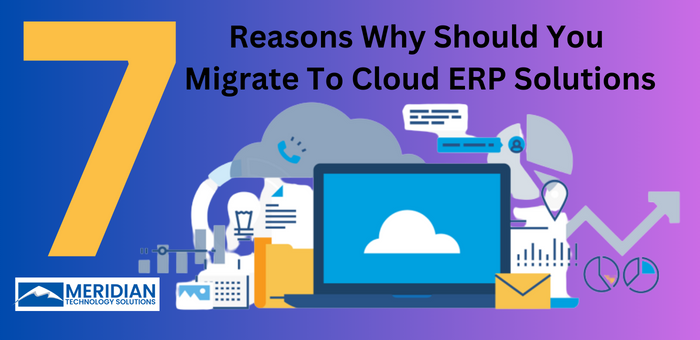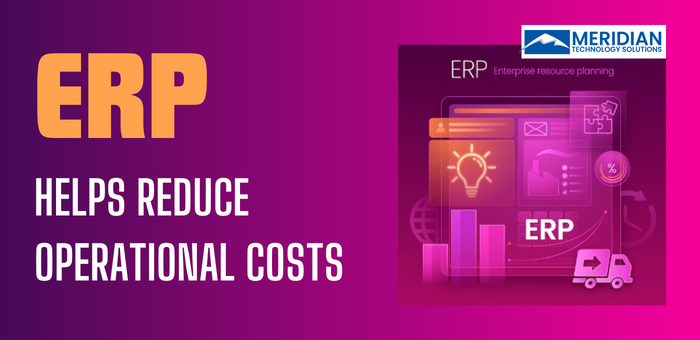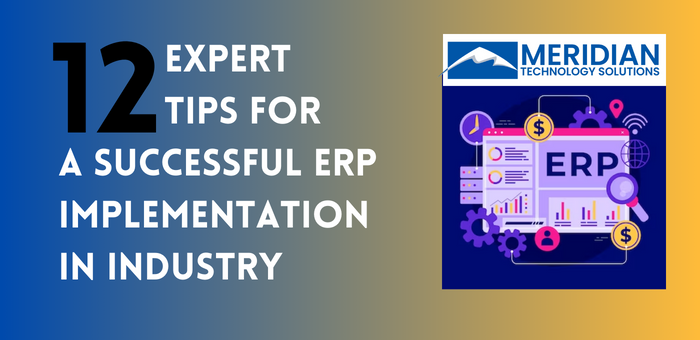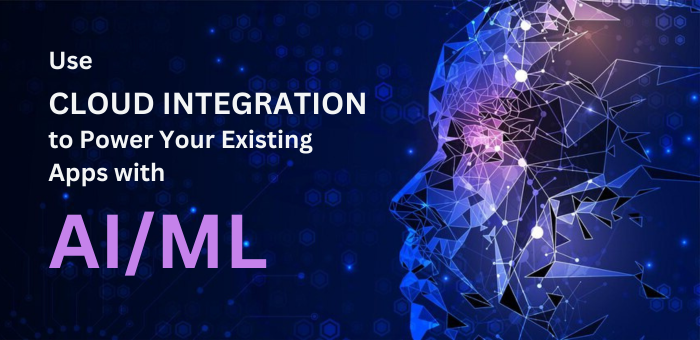7 Reasons Why Should You Migrate to Cloud ERP Solutions
Every business has witnessed a huge shift towards cloud solutions. One such cloud-based system is ERP solutions. In a survey of IT decision-makers, 53% said ERP was an investment priority, in addition to CRM.
Undeniably, the ERP market remains in a phase of rapid expansion, with total market size expected to exceed $49.5 billion by 2025. And, the global ERP software market is expected to reach $78.4 billion by 2026 as per the latest report.
Although, the conventional on-premises ERP solutions are being replaced by cloud ERP solutions. There are several reasons for this migration.
Let’s explore the top 7 ways why you should migrate your business to ERP solutions and modernize your business process-
1. Highly Cost-effective Solution: One of the primary motivations behind migrating to cloud ERP solutions is the cost efficiency they offer.
Traditional on-premises ERP systems often require substantial upfront costs for hardware, software licenses, and IT infrastructure. And, the businesses must allocate resources for upgrades, ongoing maintenance, and support. All these lead to unpredictable expenses.
In contrast, cloud ERP solutions follow a subscription-based model, where you pay for the services you use. This eliminates the need for substantial initial investments, and you only pay for what you consume. Moreover, the cloud provider handles maintenance, upgrades, and security, reducing the total cost of ownership significantly.
2. Flexibility & Scalability:
Businesses today operate in dynamic environments where growth and change are constants. Cloud ERP solutions are inherently scalable, which means you can effortlessly adapt to evolving business needs. Whether you’re experiencing rapid expansion or seasonal fluctuations, cloud ERP solutions provide the flexibility to scale up or down quickly.
This scalability is crucial for businesses aiming to stay competitive. Traditional on-premises systems often require significant lead times and investments to accommodate growth. In contrast, cloud ERP systems allow you to add resources and users on-demand, enabling your organization to respond agilely to market changes.
3. Collaboration & Accessibility:
Businesses today operate in dynamic environments where growth and change are constants. Cloud ERP solutions are inherently scalable, which means you can effortlessly adapt to evolving business needs. Whether you’re experiencing rapid expansion or seasonal fluctuations, cloud ERP solutions provide the flexibility to scale up or down quickly.
This scalability is crucial for businesses aiming to stay competitive. Traditional on-premises systems often require significant lead times and investments to accommodate growth. In contrast, cloud ERP systems allow you to add resources and users on-demand, enabling your organization to respond agilely to market changes.
4. Improved Security & Compliance:
Security and compliance are paramount concerns for any business, particularly when dealing with sensitive data. Cloud ERP solutions often offer robust security measures that surpass what many businesses can achieve with on-premises systems.
Cloud providers invest heavily in security infrastructure, including data encryption, firewalls, access controls, and intrusion detection systems. They also conduct regular security audits and updates to stay ahead of emerging threats. Migrating to a cloud ERP solution allows you to leverage these advanced security features without the burden of managing them in-house.
Additionally, cloud ERP providers frequently have industry-specific compliance certifications (For Example: HIPAA for healthcare, GDPR for data privacy) that simplify adherence to regulatory requirements. This reduces the risk of non-compliance, which can result in substantial fines and reputational damage.
5. Disaster Recovery and Business Continuity:
Unforeseen events such as natural disasters, hardware failures, or cyberattacks can negatively impact on the business functioning and this might lead to data loss. Traditional on-premises ERP systems are vulnerable to these risks, and recovering from such events can be time-consuming and costly.
More than 50% of companies are soon acquiring, upgrading or planning to update ERP systems soon. Cloud ERP solutions are designed with disaster recovery and business continuity in mind. Cloud providers replicate data across multiple data centers in geographically diverse locations, ensuring data redundancy and resilience. In the event of a disaster, you can quickly restore your systems and data, minimizing downtime and ensuring business continuity.
This level of disaster recovery preparedness is often challenging and expensive to achieve with on-premises systems. By migrating to the cloud, your organization can safeguard critical data and maintain operational stability even in the face of unexpected disruptions
6. Automatic Updates and Maintenance:
Keeping ERP software up to date is essential to benefit from new features, improvements, and security patches. However, updating on-premises ERP systems can be complex and time-consuming, requiring IT resources and causing system downtime.
Cloud ERP solutions have the ability to automatically deliver updates and handle maintenance tasks. Cloud service providers manage these tasks and make sure that your ERP system is always updated and highly secure. This will save time and effort thereby reducing the risk of system errors due to old software being utilized.
With automatic updates, your business can focus on utilizing the ERP system to drive productivity and innovation, rather than allocating resources to routine maintenance activities. Additionally, cloud providers ensure that all components of the system work seamlessly together, reducing the likelihood of compatibility issues.
7. Advanced Data Analytics and Meaningful Insights:
Data is a critical asset for modern businesses, and cloud ERP solutions excel at data analytics and insights. These systems make use of the computational power and storage abilities of the cloud for data processing in huge volumes. This enables organizations to gain deeper insights into their operations, customer behavior, and market trends.
Cloud ERP solutions are often embedded with built-in analytics tools and integrations with business intelligence platforms. This helps users to build customized reports, dashboards, and visualizations to support data-driven decision-making. It also comes with advanced analytics capabilities that helps empower businesses to find out the good opportunities for better cost savings, revenue growth, and operational management.
Furthermore, cloud ERP systems work on the most recent technologies such as artificial intelligence and machine learning to bring automation in the business functioning, predict results, and thus, optimize processes. These technologies improve the overall efficiency and productivity of businesses and provide a competitive edge.
To Sum Up,
Migrating to cloud ERP solutions offers businesses a wide range of benefits, including cost efficiency, scalability, accessibility, enhanced security, disaster recovery, automatic updates, and advanced analytics. While the decision to migrate may involve challenges such as data migration and training, the long-term advantages far outweigh the initial effort.
Embracing cloud-based ERP solutions positions organizations to thrive in today’s dynamic and competitive business landscape, making it a strategic move for any modern business.
To know more about Cloud ERP Solutions, talk to our experts.
Meridian Technology Solutions is a leading IT services and consulting firm that develops software products, mobile apps, CRM and ERP solutions for clients globally. We’ve more than 24 years of expertise in IT product development and off-shore services.




